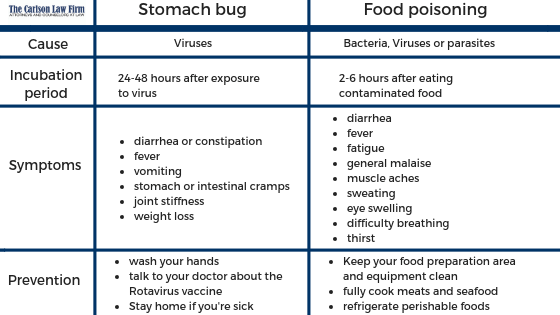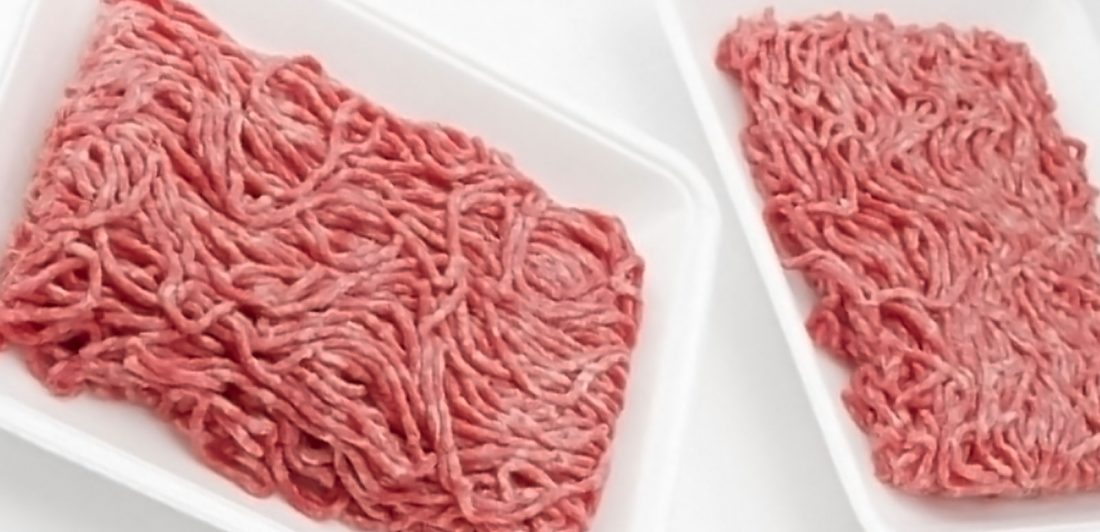A raw beef recall linked to a salmonella outbreak that has sickened 246 people in 25 different states is being expanded to include more than 2,500 tons. The current recall comes just months after the Arizona-based JBS Tolleson plan recalled about 3,500 tons of potentially contaminated beef in October.
To date, the recall affects approximately 12,093,271 pounds of non-intact raw beef products that may be contaminated with Salmonella.
The U.S. Department of Agriculture (USDA) has labeled the recall as a Class I Recall meaning that the health risk is high. Addition, the USDA has recommended that consumers throw away or return meat covered in the expanded raw beef recall:
- packaged between July 26, 2018 and Sept. 7, 2018
- carries “EST. 267” within the USDA inspection mark
In addition, the USDA has provided photographs of the labels of the affected packages. Affected raw beef products have been sold at more than 100 stores nationwide, including Sam’s Club, Walmart, Ralph’s and under the brand names of Kroger, Laura’s Lean and Generic JBS.
While JBS maintains that all of the affected product was removed from shelves during the October recall, the USDA Food Safety and Inspection Service say that its investigators identified at least three patients believed to have been sickened by the beef that was not part of the October recall.
The company says that it made a “cautious decision” to expand the recall because of some potentially contaminated frozen in consumers’ homes.
Who is JBS Tolleson?
JBS is the world’s top meat processing plant. In fact, the mega-meat processor surpasses the combined total of the world’s top 11 to 20 meat processing companies.
The company is a leading processor of beef, pork and lamb in the U.S. Additionally, it is the leading processor of beef in Canada and the largest cattle feeder in the world. The company has operations in the U.S., Canada and Mexico.
Are Foodborne Illness Outbreaks Increasing?
According to preliminary data from the U.S. Centers for Disease Control and Prevention (CDC), the overall number of Campylobacter, Listeria, Salmonella, Shigella, Vibrio and Yersinia infections increased 96 percent in 2017 compared the 2014-2016 average.
In fact, according to the Centers for Disease Control and Prevention foodborne illness affects one in six American every year. The agency estimates that 48 million people get sick each year due to at least 31 pathogens. Additionally, about 128,000 people are treated in the hospital and about 3,000 die annually. Each year, approximately 200 illness clusters are investigated, but only about 15 turn out to be actual outbreaks. So far in 2018, there are currently 23 outbreak investigations ongoing or completed.
Foodborne illness outbreaks are influenced by seasonal and environmental factors. In fact, according to the Fourth National Climate Assessment, foodborne illnesses are on the rise because of increasing temperatures on Earth. Salmonella is one of the more common types of food poisoning.
Outbreaks are the end of a very long outbreak investigation process. The process includes collecting evidence, confirming an illness causing pathogen and tracing contacts. This is typically a coordinated effort between the CDC and state health departments.
The proportion of Americans considered to be at risk for foodborne illness is increasing. However, many of these people may not know that they are at risk.
Complications from Food Poisoning
Dehydration is the most common complication of food poisoning. The condition is marked by the severe loss of water and essential salts and minerals. This occurs when a person is unable to replace fluids lost through food poisoning symptoms, vomiting and diarrhea. In most healthy adults who get plenty of fluids, dehydration isn’t much of a problem. However, in vulnerable populations such as very young children (under five), older adults, pregnant women and people with suppressed immune systems or chronic illnesses, the effects of dehydration are much more severe.
There is often confusion between stomach bugs and foodborne illness. However, the two illnesses differ in incubation period and symptoms:

Is ground beef safe to eat if I cook it?
Ground beef is a staple in the food we eat. We can find the meat in everything from tacos to burgers prepared at home, in restaurants or school cafeterias. However, with the recent raw beef recall, it’s best that you practice excellent food safety when preparing ground beef.
Bacteria exists everywhere—including on our foods. This bacteria comes from the animal slaughtered, processing equipment or from the environment. The surface of intact meats like chicken breast, roast and steak often have bacteria. This surface bacteria is easily killed off during cooking. For this reason, eating a rare steak doesn’t carry the same risks as eating a rare hamburger. However, in ground meats, the bacteria on the surface mixes throughout the meat as it ground into tiny pieces. As a result, ground beef, chicken, turkey, pork and any other ground meat must be cooked all the way through in order to kill bacteria.
While freezing can kill some bacteria, others can survive both refrigerator and freezer temperatures.
Preparing ground beef
Make sure that your beef is not a part of current or past raw beef recalls. If it is, throw it away or take it back to the store you purchased it from. Even if you cook recalled products all the way through, ground beef can brown before all of the bacteria has been killed. Additionally, these products may contaminate other surfaces in your kitchen. It is best to just not take the risk.
In restaurants:
- Double check the food of vulnerable populations such as children, pregnant women and the elderly.
- Don’t be afraid to send back any undercooked ground beef products
- Be aware that bacteria from ground beef products have contaminated other foods on the plate—including the plate.
At home:
- Cook meat until a thermometer insert in the thickest part of the patty, meatloaf or other ground beef dishes is at 160°F.
- Keep raw meat separate from ready-to-eat foods.
- Clean your hands, counters, thermometers and utensils with hot, soapy water after they touch raw ground beef.
Raw Beef Recall Victims – Call The Carlson Law Firm for Assistance
Food poisoning can lead to serious illness or death. Foodborne illnesses can happen as a result of the negligence of food manufacturers and others in the food processing chain. Food poisoning cases are complex civil lawsuits. A Food Poisoning Attorney from The Carlson Law Firm can help you recover the compensation you deserve. Damage recovery includes:
- Past and future medical expenses
- Lost income
- Out-of-pocket expenses
- Pain and suffering
- Emotional distress
Additionally, if you lost a loved one from foodborne illnesses as a result of distributor negligence, you may be able to file a wrongful death lawsuit.
If you or a loved one suffered severe food poisoning symptoms by the latest raw beef recall, there is help. Contact The Carlson Law Firm to schedule a free, no-obligation consultation with a food poisoning attorney to discuss your options.





